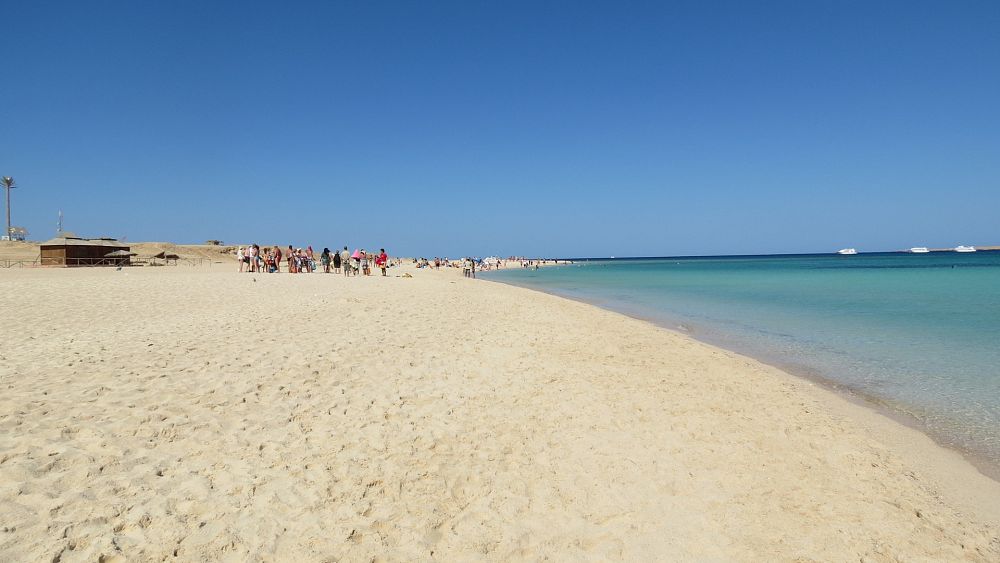A Russian man died after being mauled by a shark on Thursday off one of Egypt's Red Sea resorts, Egyptian and Russian authorities said.
Egypt's Environment Ministry said the man was killed after being attacked by a tiger shark in the waters near the city of Hurghada. Authorities closed off a 74-kilometre stretch of the coastline, announcing it will remain off-limits until Sunday.
The ministry later said it had caught the shark and was examining it in a laboratory to try and determine the reasons for the rare attack.
The Russian Consulate in Hurghada identified the man as a Russian citizen but did not give his name.
Are shark attacks in Egypt common?
A video circulating online, purportedly of the attack, shows a man thrashing about in the water before being repeatedly attacked by a shark circling around him, and then being dragged under.
Shark attacks are rare in the Red Sea coastal regions. However, in 2022, two fatal attacks in Hurghada within days, killing an Austrian and a Romanian tourist.
Egypt's Red Sea resorts, including Hurghada and Sharm el-Sheikh, boast some of the country's most renowned beach destinations and are popular with European tourists.
Divers are attracted by the steep drop-offs of coral reefs just offshore, which offer rich and colourful sea life.
Egypt has in recent years sought to revive the vital tourism sector, hurt by years of political instability, the coronavirus pandemic and the war in Ukraine.
What can you do to reduce your risk of an attack?
Tiger sharks are large species that reside in tropical and temperate waters and are among the sharks most cited by the International Shark Attack File for unprovoked attacks on humans.
The international database of shark attacks says, however, that the relative risk of being attacked is very small. There is around a 1 in 4 million chance of dying in a shark-related incident and you could be swimming with these marine creatures more often than you think.
But there are things you can do to minimise the risk even further. Advice on avoiding an attack includes keeping out of the water at night, if sharks have been spotted in the area or if you are bleeding from an open wound.
Swimmers are also urged to stay in groups as sharks are more likely to go after individuals, refrain from excess splashing and stay close to shore.
If a shark does attack, the International Shark Attack File says the best strategy is to hit it on the tip of its nose or aim for vulnerable spots like its gills and eyes.


